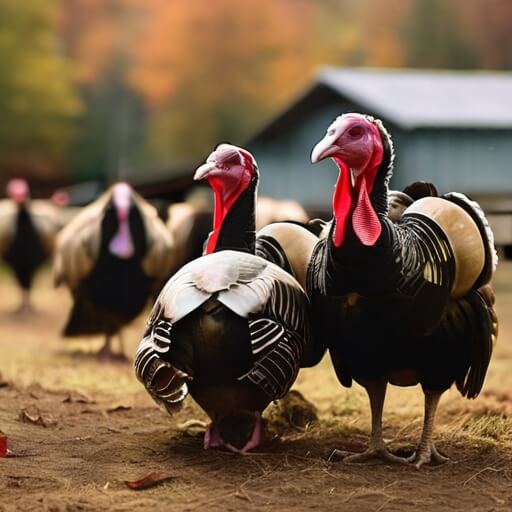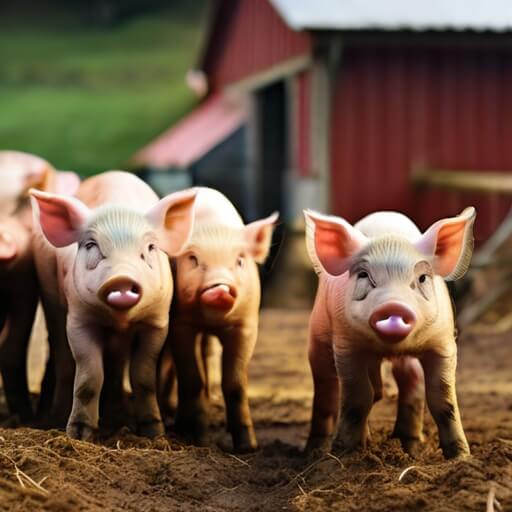Top 10 plants to grow for food in your off-grid garden
Table of Contents
1. Tomatoes
2. Lettuce
3. Peppers
4. Cucumbers
5. Carrots
6. Beans
7. Spinach
8. Peas
9. Potatoes
10. Zucchini
Growing your own food can be a rewarding experience. Not only do you get to enjoy fresh, homegrown produce, but you also have the satisfaction of knowing exactly where your food comes from. With so many options to choose from, it can be hard to decide which plants to grow. Here are the top 10 plants that are a perfect fit for off-grid garden:
1. Tomatoes
- Tomatoes are forgiving plants, suitable for beginner gardeners. With proper care, they can thrive and offer a bountiful harvest, even in off-grid settings.
- High Yield Potential: A single tomato plant can produce a surprising amount of fruit, maximizing your garden’s output and minimizing the space needed. This is essential in off-grid gardens where space might be limited.
- Versatility in the Kitchen: Tomatoes are incredibly versatile. Enjoy them fresh in salads and sandwiches, use them for sauces and salsas, or preserve them through drying or canning for year-round enjoyment. This reduces reliance on external food sources.
- Seed Saving Potential: Many tomato varieties are open-pollinated, meaning you can save seeds from your harvest for future plantings. This promotes self-sufficiency and reduces reliance on purchasing seeds each year, a plus for off-grid living.
- Minimal Special Needs: While they require good sunlight and consistent moisture, tomatoes don’t have overly specific needs when compared to some other vegetables. This makes them manageable even with limited amendments or fertilizers, which can be challenging to obtain when living off-grid.
2. Lettuce
- Fast-Growing and Short Season: Lettuce matures quickly, often within 4-6 weeks of planting. This allows for multiple harvests throughout the growing season, maximizing your yield and providing a steady supply of fresh greens.
- Cool Season Crop: Lettuce thrives in cooler weather and can even tolerate light frosts. This is advantageous in off-grid locations where temperature control might be limited. You can extend your harvest season by planting lettuce in early spring and again in fall.
- Minimal Space Requirements: Lettuce plants are compact and don’t require a lot of space to grow. This makes them ideal for off-grid gardens with limited space, allowing you to maximize your yield even in small areas.
- Low Maintenance: Lettuce doesn’t have demanding needs. They require moderate watering and prefer indirect sunlight, making them a relatively low-maintenance crop, suitable for off-grid gardeners who might have limited resources or time.
- Versatility in Use: Lettuce comes in a variety of textures and flavors, offering versatility in your off-grid kitchen. Enjoy it fresh in salads, wraps, or sandwiches, adding essential vitamins and minerals to your diet.
3. Peppers
- Variety and Flavor Profile: Peppers come in a wide range of varieties, from mild bell peppers to fiery chilies. This offers adaptability to your taste preferences and allows for culinary creativity in your off-grid kitchen.
- Compact Plants, Big Yields: Pepper plants are generally compact, requiring less space than some other vegetables. Despite their size, they can produce a good amount of peppers throughout the growing season, maximizing your yield in a limited off-grid garden space.
- Drying Potential: Peppers are excellent candidates for drying. Dehydrating your harvest allows for long-term storage and concentrated flavor, perfect for adding a spicy kick to off-grid meals year-round. This reduces reliance on fresh produce and utilizes preservation techniques suitable for off-grid living.
- Relatively Low Maintenance: Peppers thrive in warm weather with moderate watering. They generally don’t require excessive attention or specific fertilizers, making them manageable for off-grid gardeners with limited resources.
- Potential for Seed Saving: Many pepper varieties are open-pollinated, allowing you to save seeds from your harvest for future plantings. This promotes self-sufficiency and reduces dependence on external resources, a significant benefit for off-grid living.
4. Cucumbers
- High Yield Potential: A single cucumber plant can produce a significant amount of fruit throughout the growing season. This maximizes your harvest and provides a steady supply of fresh vegetables, reducing reliance on external sources.
- Relatively Fast-Growing: Cucumbers mature relatively quickly, often within 50-60 days of planting. This allows for multiple plantings throughout the growing season, extending your harvest window and ensuring a continuous supply of fresh cucumbers for your off-grid table.
- Space-Saving Options: While some cucumber varieties require trellising, there are also compact bush varieties that thrive in limited spaces. This makes them ideal for off-grid gardens where space might be a premium, allowing you to maximize your yield even in a small area.
- Minimal Water Needs: Compared to some other vegetables, cucumbers have moderate water requirements. While they prefer consistent moisture, they are more tolerant of slight drought conditions than some other options. This can be beneficial in off-grid locations where water resources might be limited.
- Versatility in Use and Preservation: Enjoy cucumbers fresh in salads and sandwiches, or explore preservation techniques like pickling for longer-term storage. Pickled cucumbers add a tangy flavor to off-grid meals and extend your enjoyment of the harvest beyond peak season.
5. Carrots
- Low Maintenance: Carrot plants are relatively low-maintenance compared to other vegetables. They don’t require frequent feeding or special care, making them manageable for off-grid gardeners with limited resources or time.
- Long Harvest Window: Carrots benefit from cooler temperatures and can be left in the ground for extended periods. This allows you to harvest them as needed throughout the fall and even into winter in some climates, providing a source of fresh vegetables even after other crops have finished producing.
- Nutrient Rich: Carrots are a great source of vitamins, particularly vitamin A, and dietary fiber. This contributes to a healthy and balanced diet, especially valuable when fresh produce options might be limited in off-grid living situations.
- Storage Potential: Harvested carrots store well for extended periods in cool, dark, and humid conditions. Techniques like storing them in root cellars or burying them in sand can extend their shelf life for months, reducing waste and maximizing your harvest’s benefits.
- Space-Efficient: Carrot plants don’t require a lot of space to grow. They can be planted in rows close together, allowing you to maximize your yield even in a small off-grid garden.
6. Beans
- High Nutritional Value: Beans are a fantastic source of protein and fiber, essential nutrients that can be scarce in some off-grid diets relying heavily on vegetables. They provide a complete protein source when combined with grains, making them a valuable addition to a balanced off-grid meal plan.
- Nitrogen Fixation: Unlike most plants, beans have a symbiotic relationship with nitrogen-fixing bacteria in their root nodules. These bacteria take nitrogen from the air and convert it into a usable form for the plant and the surrounding soil. This eliminates the need for constant nitrogen fertilization, a significant benefit for off-grid gardeners with limited resources.
- Multiple Varieties and Uses: There’s a vast array of bean varieties, each with its own flavor profile and culinary uses. From green beans and snap peas for fresh eating to dried beans for soups, stews, and dals, beans offer versatility and adaptability to your off-grid kitchen needs.
- Storage Capabilities: Dried beans are champions of long-term storage. They can be stored for months, even years, under cool, dry conditions. This allows you to preserve your harvest and enjoy the benefits of beans throughout the year, reducing reliance on fresh produce availability.
- Relatively Easy to Grow: Beans are generally considered easy to grow vegetables. They thrive in warm weather and require moderate watering. This makes them manageable for off-grid gardeners of all experience levels.
7. Spinach
- Cool-Season Crop: Unlike many vegetables that require hot weather, spinach flourishes in cooler temperatures. This allows you to plant it early in spring and extend the harvest into fall in many climates. This is particularly beneficial in off-grid locations where temperature control might be limited.
- Fast-Growing and Multiple Harvests: Spinach matures quickly, often within 4-6 weeks of planting. You can enjoy multiple harvests throughout the growing season by planting successions. This provides a steady supply of fresh greens for your off-grid table and reduces reliance on external sources.
- Nutrient Rich: Spinach is a powerhouse of vitamins and minerals, particularly vitamins A and K, and folate. These essential nutrients contribute to a healthy diet, especially valuable when fresh produce options might be limited in off-grid living situations.
- Space-Efficient and Compact: Spinach plants are compact and don’t require a lot of space to grow. You can plant them closely together or even in containers, making them ideal for off-grid gardens with limited space, allowing you to maximize your yield in a small area.
- Regrowth Potential: Certain spinach varieties offer the advantage of regrowth. After harvesting the outer leaves, the plant can produce new inner leaves, allowing you to enjoy multiple harvests from a single planting. This extends your harvest window and maximizes your use of resources.
- Minimal Water Needs: Spinach thrives with moderate watering and doesn’t require excessive moisture. This makes it suitable for off-grid living situations where water conservation is crucial.
8. Peas
-
Cool-Season Crop: Peas thrive in cooler temperatures, flourishing in early spring and fall in many climates. This allows you to extend your harvest window and enjoy fresh vegetables even when other options might not be available. This is particularly beneficial in off-grid locations where temperature control might be limited.
-
Fast-Growing and Multiple Harvests: Similar to spinach, peas mature quickly, often within 6-8 weeks of planting. You can enjoy multiple harvests throughout the growing season by planting successions. This provides a steady supply of fresh, vitamin-rich peas for your off-grid table and reduces reliance on external sources of produce.
-
Space-Efficient and Compact: Pea plants are climbers, but they don’t require a lot of space. You can grow them in rows with simple trellises or even utilize containers. This makes them ideal for off-grid gardens with limited space, allowing you to maximize your yield in a small area.
-
Nitrogen Fixation: Like their bean cousins, peas have a symbiotic relationship with nitrogen-fixing bacteria in their roots. These bacteria take nitrogen from the air and convert it into a usable form for the plant, enriching the soil in the process. This reduces the need for external nitrogen fertilizers, a significant benefit for off-grid gardeners with limited resources.
-
Versatility in Use and Preservation: Enjoy fresh peas in salads and stir-fries, or explore preservation techniques like shelling and drying them for later use. Dried peas retain their nutritional value and can be enjoyed in soups, stews, and various dishes throughout the year, extending your enjoyment of the harvest.
-
Relatively Low Maintenance: Peas are generally considered easy-to-grow vegetables. They thrive in cooler weather with moderate watering. This makes them manageable for off-grid gardeners of all experience levels, requiring minimal attention for a rewarding harvest.
9. Potatoes
-
High Yield Potential: A single potato plant can produce a surprising amount of tubers, maximizing your harvest and minimizing the space needed in your garden. This is crucial in off-grid settings where space might be limited.
-
Nutritional Powerhouse: Potatoes are packed with essential nutrients, including carbohydrates, potassium, and vitamin C. They provide a source of long-lasting energy and essential vitamins, vital for a balanced diet, especially when fresh produce options might be scarce.
-
Long Storage Life: Unlike many vegetables that spoil quickly, potatoes excel in long-term storage. Properly stored in a cool, dark, and well-ventilated location (like a root cellar), potatoes can last for months. This minimizes waste and allows you to enjoy your harvest well into the off-season.
-
Adaptability and Versatility: Potatoes come in a wide variety of types, from starchy baking potatoes to waxy salad potatoes. This versatility allows you to use them in countless ways, from roasting and mashing to frying and using them in stews and soups. This adaptability keeps your meals interesting and maximizes the use of your harvest.
-
Relatively Drought Tolerant: Compared to some other vegetables, potatoes are surprisingly drought-tolerant. While they benefit from consistent moisture, they can withstand occasional dry spells better than some options. This is a valuable trait in off-grid locations where water conservation is essential.
-
Easy to Grow: Potatoes are generally considered easy-to-grow vegetables. They don’t require excessive care or specific fertilizers, making them manageable for off-grid gardeners of all experience levels.
10. Zucchini
-
High Yield Potential: A single zucchini plant can produce a significant amount of fruit throughout the growing season. This maximizes your harvest and provides a steady supply of fresh vegetables, reducing reliance on external sources of produce.
-
Fast-Growing and Continuous Production: Zucchini matures quickly, often within 50-60 days of planting. Additionally, they are continuous producers, meaning you can harvest multiple zucchinis from the same plant throughout the season if you pick them regularly. This extends your harvest window and ensures a frequent supply of fresh vegetables for your off-grid meals.
-
Minimal Space Requirements: Zucchini plants are considered bush varieties, meaning they grow in a compact form rather than sprawling vines. This allows them to thrive even in off-grid gardens with limited space. You can maximize your yield by utilizing vertical gardening techniques like trellises or planting them in raised beds.
-
Moderate Watering Needs: While zucchini benefits from consistent moisture, they don’t require excessive watering compared to some other vegetables. This is a plus for off-grid living situations where water conservation is a priority. Mulching around the plants helps retain moisture and reduces the need for frequent watering.
-
Versatility in Use and Preservation: Zucchini’s mild flavor and firm texture make it a versatile ingredient in off-grid kitchens. Enjoy them fresh in salads, stir-fries, and zucchini noodles. Additionally, zucchini is well-suited for preservation techniques like drying or pickling. This allows you to extend your enjoyment of the harvest beyond peak season and store them for future use.
-
Relatively Easy to Grow: Zucchini is considered a beginner-friendly vegetable. They don’t require complex care or specific fertilizers, making them manageable for off-grid gardeners of all experience levels. With proper sunlight, watering, and occasional pest control, you can enjoy a bountiful harvest.
Conclusion
This list offers just a starting point for your off-grid garden adventure. Remember, the best vegetables for your unique situation will depend on your climate, available space, and personal preferences. With a little research and planning, you can cultivate a thriving garden that provides fresh, nutritious food throughout the seasons.
So, get your hands dirty, embrace the challenge, and watch your off-grid oasis flourish with the bounty of your own garden!



Your article helped me a lot, is there any more related content? Thanks!